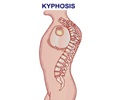It's true that there have been reports of partial death of a jawbone (osteonecrosis) related to osteoporosis medications, but the risk is very small.
Reports of osteoporosis drugs causing jaw problems have you wondering: Should you stop taking them?
It's true that there have been reports of partial death of a jawbone (osteonecrosis) related to osteoporosis medications, but the risk is very small, according to the December issue of Mayo Clinic Health Letter.In contrast, the health risks associated with osteoporosis — a disease that causes bones to become brittle and to fracture — are high. More than half of Americans over 50 either have or are at risk of developing osteoporosis. If a fracture occurs, you're at risk of becoming disabled, ending up in a nursing home or even dying.
To treat osteoporosis, millions of Americans take oral bisphosphonate drugs, a class of drugs that includes alendronate (Fosamax), ibandronate (Boniva), risedronate (Actonel) and others. Estimates indicate about 20 cases of osteonecrosis may occur in a year in this large group of people. Osteonecrosis is characterized by jaw pain, swelling, loose teeth and exposed jawbone.
It's not fully known how oral bisphosphonates are associated with osteonecrosis or why it occurs in the jaw. Most cases have occurred after tooth removal or oral surgery. The risk of osteonecrosis appears to be higher for people who take the drug intravenously, which is a treatment for some cancers.
If you take oral bisphosphonate drugs, you may be able to lower your already low risk of developing osteonecrosis by practicing good hygiene and visiting your dentist for regular checkups. If possible, consider having major dental work done before starting the medication. If you take the medication, talk to your dentist and doctor about whether taking a break from the medication might be appropriate before dental work.
Source-Newswise
SRM











